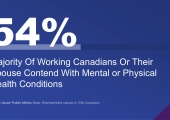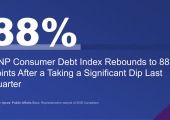Three In Ten (28%) Canadian Investors Do Not Have RRSPs
Six-in-ten (59%) Canadians feel in control of their investment priorities and half (50%) believe that they have a very good understanding of the amount of investments that would be needed to fun their desired retirement.
These are some of the findings of an Ipsos-Reid poll conducted on behalf of the Bank of Nova Scotia between December 9 and December 13, 2004. The poll is based on a randomly selected sample of 2,906 adult Canadians from the Ipsos-Reid Online Panel. With a sample of this size, the results are considered accurate to within 1771.8 percentage points, 19 times out of 20, of what they would have been had the entire adult Canadian population been polled. The margin of error will be larger within regions and for other sub-groupings of the survey population. These data were statistically weighted to ensure the sample's regional and age/sex composition reflects that of the actual Canadian population according to the 2001 Census data.
Three in ten (28%) Canadian investors do not have RRSPs in their portfolios. Among those who do, fully 60% never contribute the maximum allowable amount and only 16% contribute the maximum always. One-quarter (23%) says they occasionally contribute te maximum allowable amount, but not always.
- Two-thirds of women (64%) never contribute the maximum (versus 57% of men) and only 10% always maximize their contributions (versus 20% of men).
- The tendency to always maximize contributions increases with age from 10% among 18 to 34 year olds to 25% of those aged 55+. The tendency to never maximize contributions decreases with age from two-thirds of those 18-34 to 46% of those aged 55+.
- This sense is stronger among males (65%) than females (52%) and increase with age from 55% of those 18 to 34 years of age to 70% of those 55+. Conversely the proportion of those who disagree somewhat to strongly decrease with age from a high of 23% of those aged 18.34 to a low of 13% of those aged 55+.
- Here again, males are more confident than females (57% versus 43%) and this confidence increases with age. Four-in-ten (42%) of those aged 18-24 strongly/agree/somewhat agree, increasing to two-thirds (65%) of those aged 55+. Conversely the proportion of those who disagree (somewhat to strongly) decreases as age rises from four-in-ten (40%) of those aged 18-34 to 17% of those aged 55+.
-30-
For more information on this news release, please contact:
John Wright
Senior Vice-President
Ipsos-Reid Public Affairs
(416) 324-2900
More insights about Financial Services


![[WEBINAR] Ipsos Global Trends 2025: Canadian Edition](/sites/default/files/styles/related_more_insights/public/ct/event/2025-08/thumbnail-templates_5.png?itok=hLtbMkre)

![[WEBINAR] Short-Form Social Misfits: Cracking the Code of Creative Excellence](/sites/default/files/styles/related_more_insights/public/ct/event/2025-08/thumbnail_0_10.jpg?itok=-V2lZWdx)